How to Treat Gout Pain with CBD: 5 Effective Ways to Try
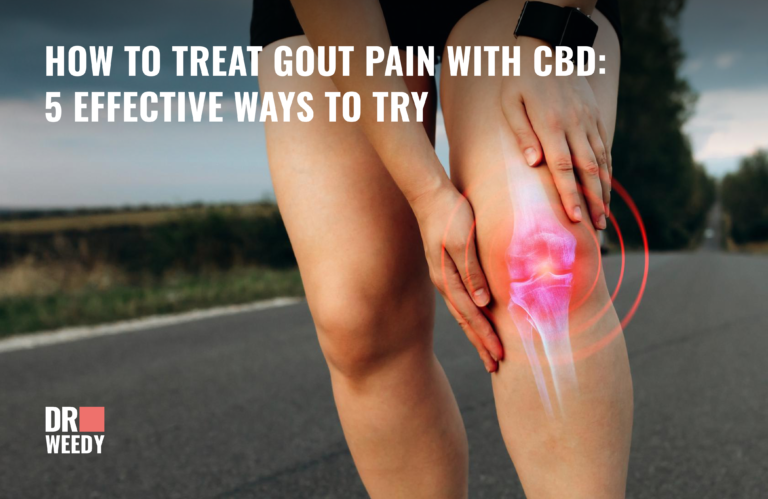
Gout flare is a real definition of pain! It can be excruciating and debilitating, interfering with your daily life and making it difficult to do the things you enjoy. If you’ve tried traditional treatments without success, it may be time to consider CBD. CBD has been shown to be effective in managing pain, including gout pain. In this article, I will unveil five ways you can use CBD to treat gout pain and finally find relief. Prepare to discover the transformative power of CBD and reclaim control over your well-being.
CBD For Gout Treatment: Does It Really Work?
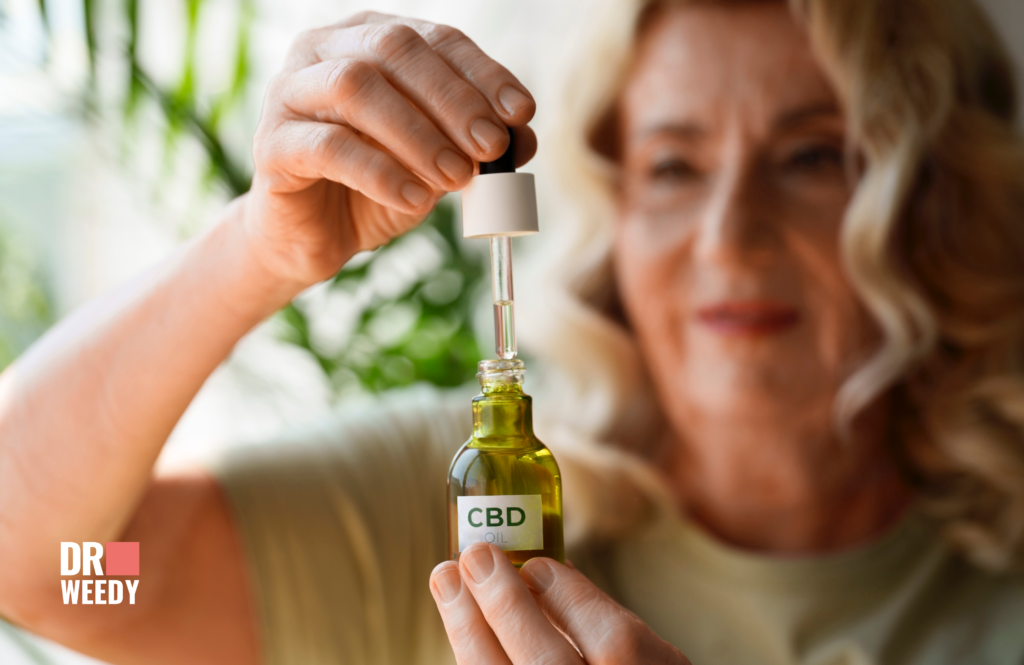
Yes, CBD is effective in relieving gout pain–the short answer. It has emerged as a promising natural remedy for alleviating gout pain, offering a beacon of hope to the millions battling with the condition. In the United States alone, an estimated 9.2 million people bear the burden of gout, and the search for effective relief has led many to explore the therapeutic potential of CBD. Indeed, approximately 64% of Americans turn to CBD for pain relief, and 27% specifically seek solace from arthritis and related ailments. The growing popularity of CBD stems from the anecdotal evidence of its efficacy in easing pain, and delivering a range of medicinal benefits. Keep reading to fully understand how CBD helps in gout management.
What is Gout?
Gout is a type of inflammatory arthritis characterized by sudden and severe pain, swelling, and tenderness, usually in the joints. It arises when there is an excess of uric acid in the blood, leading to the formation of crystals in joints. Though it commonly affects the big toe, gout can also manifest in the joints of the ankles, knees, elbows, wrists, and fingers.
What is Uric Acid and How Does it Get Too Much?

Uric acid is commonly described by health experts as a double-edged sword. This is because it is both beneficial and harmful. On the good side, uric acid promotes tissue healing by triggering inflammation, clearing free radicals, and mobilizing endothelial cell precursors. However, excessive amounts lead to gout formation.
High uric acid levels come from consuming too many purine-rich foods such as alcoholic beverages and certain sea foods; as well as taking certain medications.
Table: The Common Causes of Gout
|
Cause |
Description |
|
High uric acid levels |
Uric acid is a waste product of purine metabolism. When uric acid levels in the blood become too high, it can crystallize in the joints, causing gout. |
|
Purine-rich foods |
Purines are found in a variety of foods, including red meat, organ meats, seafood, and certain vegetables. Eating too many purine-rich foods can increase uric acid levels. |
|
Alcohol consumption |
Alcohol can increase uric acid production and make it more difficult for the kidneys to remove uric acid from the blood. |
|
Medications |
Some medications, such as aspirin and diuretics, can increase uric acid levels. |
|
Genetics |
Gout can run in families. People with a family history of gout are more likely to develop the condition. |
What is CBD Oil?
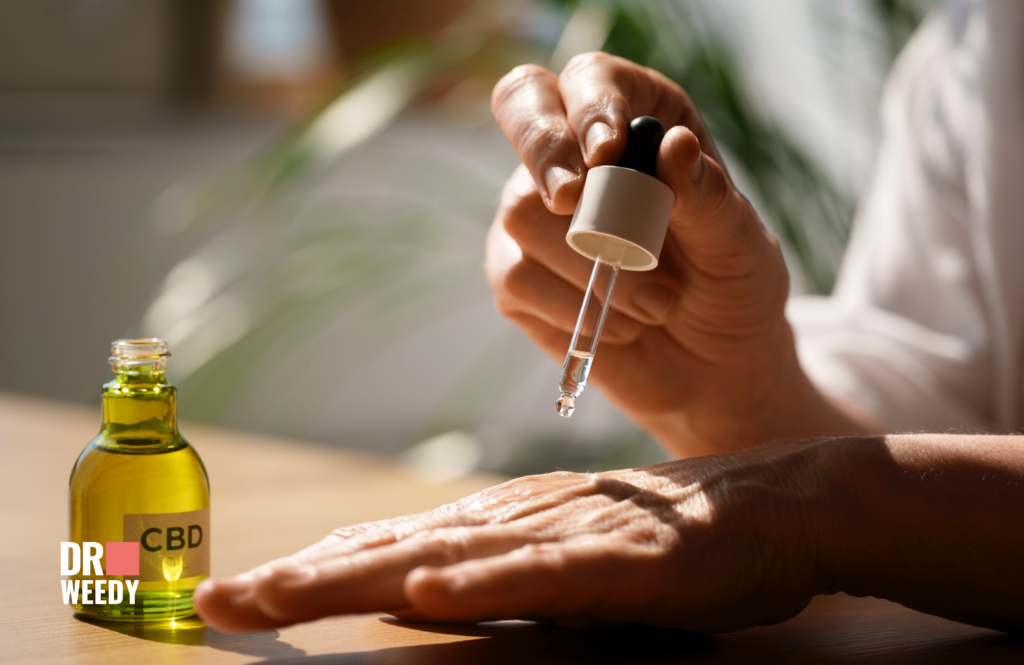
CBD, or cannabidiol, is a naturally occurring, non-psychoactive compound found in the cannabis plant. It is derived from both hemp and marijuana plants. The hemp-derived CBD oil is legal in many places, as hemp contains minimal THC as compared to the marijuana-derived CBD oil which may contain higher levels of THC, depending on how it is processed.
If you think CBD is a singular compound, think again! It is a complex mixture that may contain other cannabinoids, terpenes, and trace amounts of THC unless what you have is CBD isolate. Generally, CBD can either be full-spectrum, broad-spectrum or CBD isolate.
How Does CBD Work For Gout?

Research on the benefits of CBD oil is ongoing, but a good number of studies and increasing anecdotal evidence infer that it may have various therapeutic properties, most of which are delivered to the body via the (ECS) endocannabinoid system. The ECS is a neuromodulatory system that plays an important role in the central nervous system to regulate a range of physiological functions including pain and inflammation, amongst others. To relieve gout, the operation of CBD is believed to include the following:
1. Anti-Inflammatory Action
Gout symptoms arise from the body’s inflammatory response to uric acid crystals in the joints—and the good news is that CBD has demonstrated anti-inflammatory properties by modulating immune cell function and cytokine production. This study done in 2017 found that CBD is effective in treating inflammation and nerve damage associated with osteoarthritis.
2. Analgesic for Gout Pain Relief
Pain relief is a primary goal in managing gout, and it is one of the major reasons behind CBD’s popularity. By influencing receptors in the endocannabinoid system involved in pain perception, CBD may help reduce pain sensation, offering good relief to people experiencing acute pain associated with gout attacks. This study done by Hammell et. al, of the Department of Pharmaceutical Sciences, University of Kentucky College of Pharmacy, in 2015 found CBD to be an effective pain relief in osteoarthritis. A review in 2014 also found that CBD can indeed help with osteoarthritis pain.
3. Better Sleep Quality
I understand that the disturbing pain that comes with gout can often disrupt sleep and cause discomfort. Fortunately, with CBD, you may not have to worry about that again. The interaction between CBD and the endocannabinoid system extends to regulating sleep patterns, making it a potential aid for those looking to manage both gout symptoms and sleep disturbances.
Is CBD a Cure For Gout?
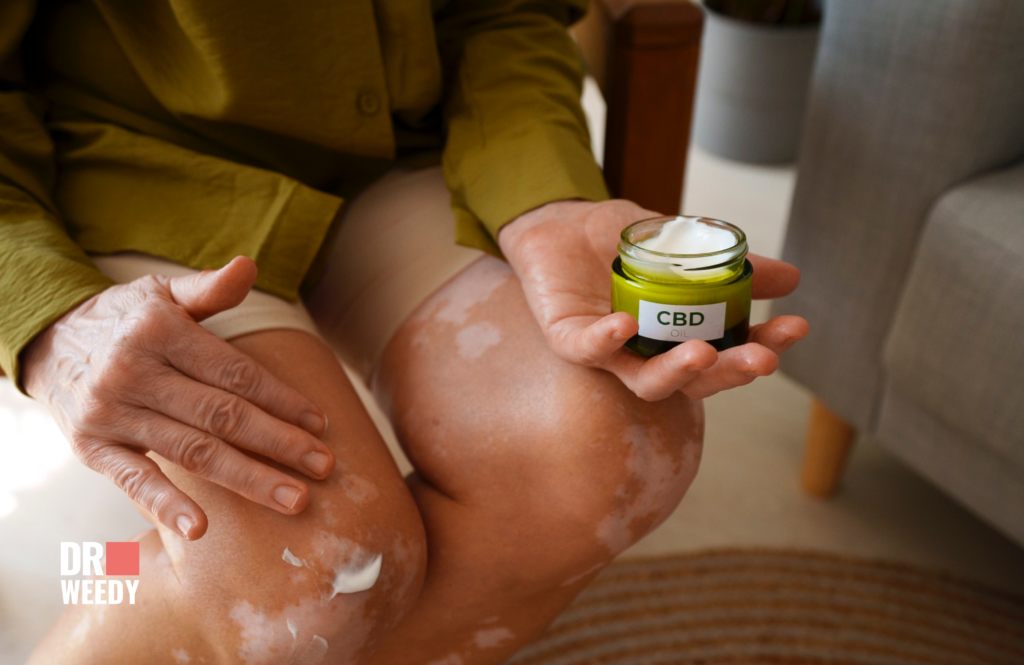
At the moment, there is no known cure for gout. However, with CBD, you can experience fewer attacks and enjoy an improved health quality.
5 Effective Ways to Use CBD For Gout Relief
1. Take CBD Tincture Orally for Pain Management
One of the primary symptoms of gout is intense joint pain, making pain management a top priority. CBD oil, with its promising analgesic properties, may be of great help. By interacting with the endocannabinoid system, CBD can help alleviate pain and inflammation, providing much-needed relief during gout flare-ups.
2. Apply CBD Cream For Gout Pain To Get Localized Relief
For targeted relief on the specific joints affected by gout, you may find topical CBD creams to be a game-changer. These creams can be applied directly to the affected area, allowing the CBD to penetrate the skin and interact with cannabinoid receptors in the joint tissues. This localized approach may offer swift relief without the need for systemic effects.
3. CBD Capsules or Edibles for Systemic Support
To address the underlying factors contributing to gout, such as inflammation and oxidative stress, you can integrate CBD capsules and edibles into your daily routine. These products allow for a systemic impact, potentially reducing overall inflammation in the body. One advantage of this method is better dosage control. CBD is also taken via vaping.
4. Wear CBD Insoles
Although it can affect other joints of the body, the big toe is most commonly attacked by gout. If this is your case, then you can add CBD insoles to your treatment regime. These are usually infused with high-quality CBD oil to reduce inflammation and pain.
5. Used CBD for Gout With Your Physician’s Guidance
This may seem obvious to you yet it is commonly disregarded. While it is true CBD shows promise in gout management, it’s essential to approach its use under the guidance of a healthcare professional. This not only helps you to maximize the benefits but also guarantees a better experience for you. Consulting with your doctor can help ensure that CBD complements your existing treatment plan, and they can provide personalized advice based on your medical history and current medications.
Frequently Asked Questions
What is the recommended dosage of CBD for gout?
The recommended dosage of CBD for gout will vary depending on individual factors so it is important to consult with a doctor and start with a low dose and gradually increase it as needed.
Are there any side effects of using CBD for gout?
CBD is generally well-tolerated, but it may cause some side effects in some people, such as dry mouth, drowsiness, and digestive issues.
Can CBD interact with other medications?
CBD may interact with certain medications, so it is important to consult with a healthcare professional before using CBD if you are taking any other medications.
Final Thoughts
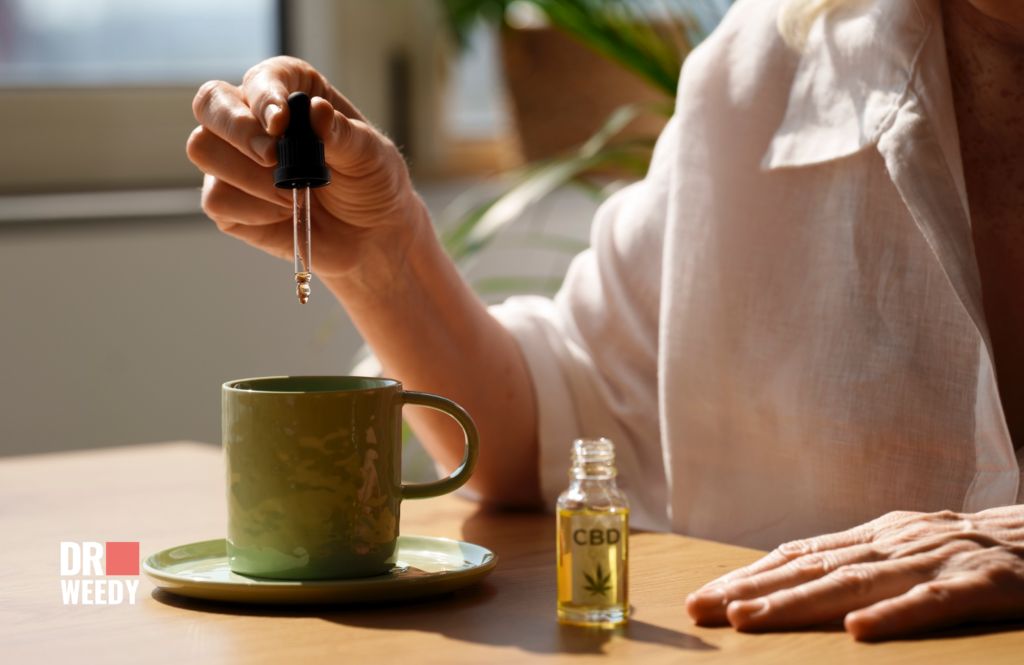
The ability of CBD to interact with the endocannabinoid system enhances its potential as a therapeutic agent. By modulating pain signals, inhibiting inflammatory pathways, and promoting relaxation, CBD offers a multifaceted approach to alleviating gout symptoms. While research is still ongoing, it is clear that CBD has come to stay as a beacon of hope in pain management. So get up, speak with your doctor, and implement the strategies I have shared with you, and you may be the next to share your CBD healing story with the world. #Cheers
Sources
- Hammell DC, Zhang LP, Ma F, Abshire SM, McIlwrath SL, Stinchcomb AL, Westlund KN. Transdermal cannabidiol reduces inflammation and pain-related behaviours in a rat model of arthritis. Eur J Pain. 2016 Jul;20(6):936-48. doi: 10.1002/ejp.818. Epub 2015 Oct 30. PMID: 26517407; PMCID: PMC4851925.
- Lu, C., & Mackie, K. (2016). An introduction to the endogenous cannabinoid system. Biological Psychiatry, 79(7), 516. https://doi.org/10.1016/j.biopsych.2015.07.028
- Nery RA, Kahlow BS, Skare TL, Tabushi FI, do Amaral e Castro A. URIC ACID AND TISSUE REPAIR. Arq Bras Cir Dig. 2015 Nov-Dec;28(4):290-2. doi: 10.1590/S0102-6720201500040018. PMID: 26734804; PMCID: PMC4755186.
- Philpott HT, O’Brien M, McDougall JJ. Attenuation of early phase inflammation by cannabidiol prevents pain and nerve damage in rat osteoarthritis. Pain. 2017 Dec;158(12):2442-2451. doi: 10.1097/j.pain.0000000000001052. PMID: 28885454; PMCID: PMC5690292.


























